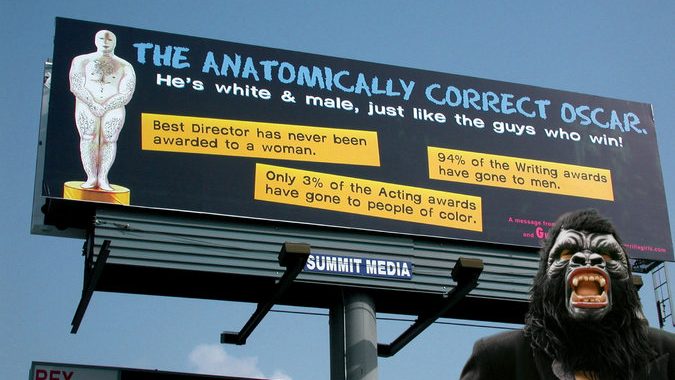A quick skim through IMDb makes it unbelievably clear that women are underrepresented in film. While perhaps not as dire when compared to the underwhelming percentage of pay that women on average make compared to men (like the current Google allegations), it is still a symptom of the overarching problem.
To combat this somewhat, in a poignant way, IMDb has instituted a tag which is “F Rated,” for female representation. Created originally by Holly Tarquini, director, producer and head of Bath Film Festival, in 2014, the term is now being applied within the film database.
The concept is related to the representation of women in both the production and presentation of cinema; it looks for films directed by, produced by, or featuring women in prominent roles. If it should achieve all three, it is a “triple F” or gold standard.

Overall, the goal is to reach a point where pointing out this representation is no longer necessary as women have become fairly and accurately represented within the industry. As Tarquini told the Bath Chronicle, “[O]ur real goal is to reach the stage when the F rating is redundant because 50 per cent of the stories we see on screen are told by and about http://www.montauk-monster.com/pharmacy/kamagra film’s unfairly under-represented half of the population – women.”
Currently, IMDb has 22,216 films with the tag, a staggeringly small number when considering the 4 million titles currently on the site. Although this number may be somewhat misleading as it seems that each individual episode of television receives its own “title,” meaning that the actual number of films might be closer to 2 million. Even so, if only 22,216 are “F rated,” the industry has a long way to go yet.
IMDb is not the only one to adopt the “F-Rating,” as some 40 film festivals have adopted the new rating system as well. Hopefully, this will lead towards more inclusion within the industry and will help to shed a light on the disparity, one which groups like the Guerrilla Girls have been attempting for years.

Hopefully the tag, and the conversations it has spurred, will benefit the industry to the point where it will become obsolete. Perhaps not anytime soon, but eventually. Until then, you can do your part by supporting films that do meet the standard. For me, I think I’ll watch Clueless again.